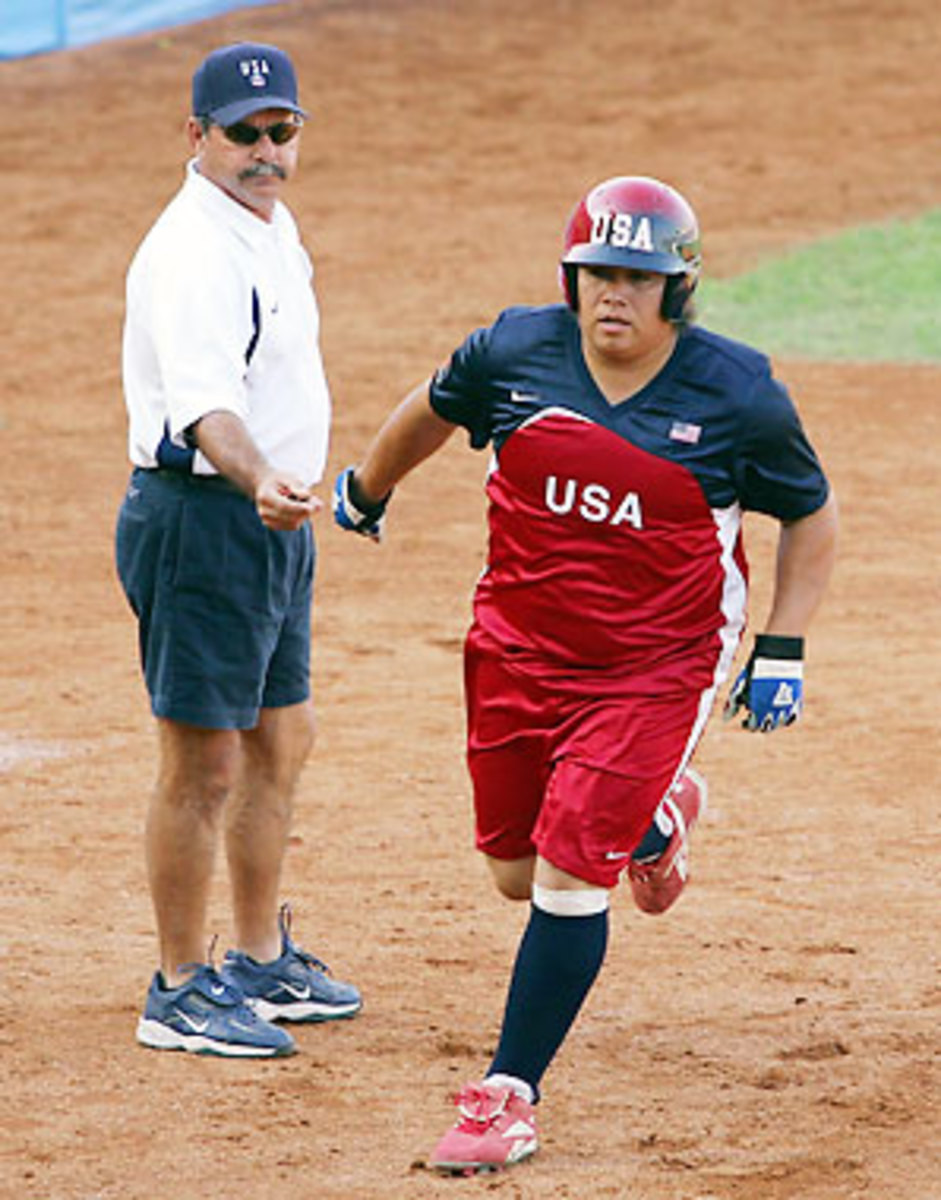U.S. dominance leads to demise of Olympic softball
BEIJING -- The team that was too good for its own good returns for the final hurrah, an overwhelming favorite to win the fourth and, for now, last, Olympic softball gold medal.
This is the blessing and the curse of the American softball team, which turns everybody else into the Washington Generals.
"Nobody deserves to get kicked out because they dominate," said Laura Berg, an outfielder who has played on all the teams since softball joined the Olympic party in 1996. "This is the Olympics. You're supposed to bring your A game."
In retrospect, maybe B-plus would have been good enough four years ago. After the ode to their Grecian burn that made American softball the toast of the Games in Athens -- SI put the players on the cover and pronounced them "The Real Dream Team" -- the IOC confirmed in 2005 that softball, along with baseball, would be off the program for London in 2012, reducing the number of sports from 28 to 26. Softball, along with six other sports, including golf, is petitioning to be back on the schedule in 2016.
The Americans didn't help themselves in Athens when they were basically helping themselves, setting 18 team records, including runs, runs batted in, stolen bases, batting average and slugging percentage, while outscoring opponents 51-1. (The only run allowed was in the sixth inning of the gold-medal game against Australia, a 5-1 win. Said a smiling Berg, "Whenever I get to talk to a school, I'm always asked, 'Why did you give up the run?' We have something to improve on in 2008.") Apparently perfection, or at least near perfection, can be harmful to your future. As catcher Stacey Nuveman conceded Saturday about the Beijing event -- the U.S opens against Venezuela Tuesday -- "(If) we go out and have a competitive tournament, that would be huge for us."
But American softball, 24-4 in Olympic competition, has a more profound problem than Cat Osterman whipping pitches past overmatched hitters or the Ruthian designated hitter Crystl Bustos denting fences: American, or at least Major League, baseball.
The IOC and MLB are at loggerheads. Unlike the National Hockey League, which since 1998 has interrupted its seasons to accommodate the Olympics for roughly a fortnight, Commissioner Bud Selig hasn't the slightest inclination to take a pennant-race hiatus in order to play for medals. The Olympics might be a show, but MLB is The Show, and IOC president Jacques Rogge shouldn't forget it. In any case, MLB likes the possibilities of its World Baseball Classic, which is still in the embryonic stage. Once the kinks in the format are worked out -- and they should be in 2009, when the second tournament will be staged -- there will never be the need to seek the five-ring seal of approval.
But the IOC might be even less enchanted than baseball about the expiring partnership, which allows players not on MLB 25-man rosters to participate in Beijing. The depth and breadth of the steroid scandal -- the Mitchell Report just scratched the surface -- and the tardy acceptance of more comprehensive drug testing by MLB has irked the IOC, which does not need the aggravation of more dirty athletes sullying the youth-of-the-world happy talk it continues to peddle. Rogge welcomes the youth of the world every four years, not Roger Clemens or Barry Bonds.
When Rogge announced softball was done, he cited a lack of universality, even though its 126 national federations exceeded the number for such staples as field hockey, sailing and rowing. IOC vice president Kevan Gosper, an Australian, came closer to the truth, suggesting softball was caught in baseball's crossfire, a sport that apparently struck some IOC members as too similar. Add in the dollop of anti-Americanism that flares internationally at the drop of a pitch, and softball was washed away in a perfect storm.
Nuveman best expressed the well-rehearsed position of USA softball at a press conference Saturday -- "Softball's over for now, but not over for good" -- and her teammates stayed on message better than China Daily, the good news state-sponsored newspaper. But a tinge of exasperation mingled with determination and regret about the IOC kiss-off.
"We're doing our part on and off the field," Bustos said. "(But) we can't make the decision for the people in those rooms. What we can do is help educate them on what our sport is about. In the long run, that's what it going to comes down to. We're not going to fix it by playing. We're not (even) going to fix it by doing clinics in every country in the world. But we can say to the people in those rooms, this is what the sport can do in your country.
"(Why they made the decision) is something I don't know. I don't really get into the politics. I'm an athlete. I play the game and that's it. Do I watch the news? No. Do I want to see what's going on in the world? No."
The American players trotted out all the hoary stuff about the competitive gap closing -- Hey, we had to rally to beat Canada, 9-5, in June! -- but memories of the Athens Annihilation are too fresh for anyone to take protestations of creeping parity seriously, at least until Japan or Australia knocks them off in Beijing. In the meanwhile, all the U.S. players can do is plead their case, swing for the fences and keep as far away as possible from that Olympic contagion, baseball.






